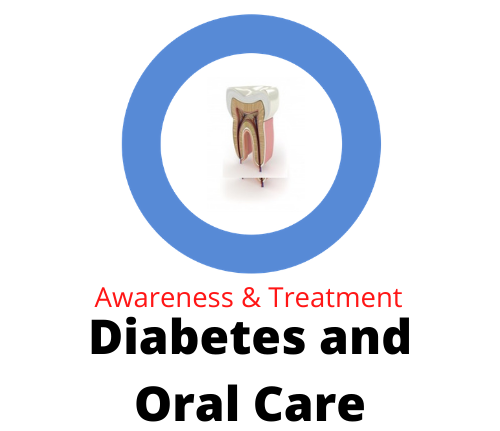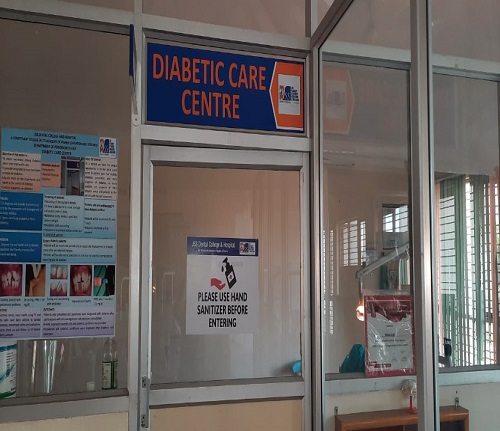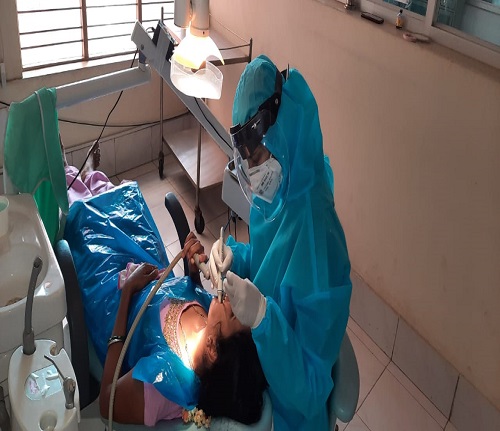Special Interest Group - Diabetes and Oral Care
"One of the biggest mistakes is that people think they can go by their symptoms. Many a times they can either have high or low blood sugar level & not know it"
Diabetes is one of the most prevalent diseases. Gum disease is considered the 6th complication of diabetes. There is a 2way relationship between diabetes and gum diseases. Severe gum diseases may alter blood sugar levels and uncontrolled blood sugar levels cause changes in mouth. Oral manifestations include caries, cheilosis (cracking at the angle of the mouth), mucosal drying & cracking, burning mouth & tongue, diminished salivary flow, abscesses, gum diseases, alterations in microorganisms.
Individuals with controlled diabetes have normal tissue response, a normally developed set of dentition (teeth), a normal defense against infections & no increased evidence of teeth decay (dental caries). Gum (periodontal) problems in some patients with poorly controlled diabetes include increased bleeding on brushing, enlarged gingiva (gums), multiple abscess (pus) formation. Gum diseases in such patients do not follow a consistent/distinct pattern/manner. Advanced bone loss, enlarged, reddened gums may also be seen. Risk for development of periodontitis may be increased by three fold.
There is an altered defense cell function in gum diseases (periodontitis). They also play a significant role in classic complications & also play a significant role in susceptibility of individuals with diabetes to infections & destructive gum disease (advanced periodontitis). It is advised for these patients that they be on a Physician/ diabetologists care for their routine maintenance. Diabetic patients should receive blood sugar monitoring, dental check-ups They should undergo scaling as advised by the dentists. Scaling (cleaning of teeth) reduces the reddish enlarged gums.
The need to maintain oral hygiene care is v. important in such patients to reduce plaque, calculus (deposits on tooth) build-up. Oral treatment also helps reduce blood sugar levels as per research. Systemic antibiotics may not be required routinely unless in poorly controlled diabetes. Some patients may require a consultation with a diabetologist as well as a gum specialist (Periodontists) for further periodontal therapy wherein gum surgeries or any other periodontal treatment may be required. Gum surgeries and root canal therapies (Endodontist), oral treatment can be done once the patients’ blood sugar levels come down to normal ranges. Therefore, an awareness on oral & gum changes is required. With an awareness of this kind the patient can be aware of oral/gum care, need for consulting a dentist/gum specialist as when required.
Some of the oral conditions associated with Diabetes are :
- Periodontal (gum) disease
- Gum abscesses
- Tooth decay
- Fungal infections such as oral thrush
- Lichen planus, Mouth ulcers
- Dry mouth & taste disturbances












